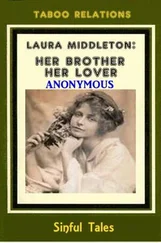Michael Jecks - The Templar, the Queen and Her Lover
Здесь есть возможность читать онлайн «Michael Jecks - The Templar, the Queen and Her Lover» весь текст электронной книги совершенно бесплатно (целиком полную версию без сокращений). В некоторых случаях можно слушать аудио, скачать через торрент в формате fb2 и присутствует краткое содержание. Год выпуска: 2014, ISBN: 2014, Издательство: Headline, Жанр: Исторический детектив, на английском языке. Описание произведения, (предисловие) а так же отзывы посетителей доступны на портале библиотеки ЛибКат.
- Название:The Templar, the Queen and Her Lover
- Автор:
- Издательство:Headline
- Жанр:
- Год:2014
- ISBN:9781472219855
- Рейтинг книги:5 / 5. Голосов: 1
-
Избранное:Добавить в избранное
- Отзывы:
-
Ваша оценка:
- 100
- 1
- 2
- 3
- 4
- 5
The Templar, the Queen and Her Lover: краткое содержание, описание и аннотация
Предлагаем к чтению аннотацию, описание, краткое содержание или предисловие (зависит от того, что написал сам автор книги «The Templar, the Queen and Her Lover»). Если вы не нашли необходимую информацию о книге — напишите в комментариях, мы постараемся отыскать её.
The Templar, the Queen and Her Lover — читать онлайн бесплатно полную книгу (весь текст) целиком
Ниже представлен текст книги, разбитый по страницам. Система сохранения места последней прочитанной страницы, позволяет с удобством читать онлайн бесплатно книгу «The Templar, the Queen and Her Lover», без необходимости каждый раз заново искать на чём Вы остановились. Поставьте закладку, и сможете в любой момент перейти на страницу, на которой закончили чтение.
Интервал:
Закладка:
However, where there were many warriors there were equally many threats. In theory the first was the threat to the Queen herself,but looking about him Baldwin judged that she was safe enough. With the small force of Englishmen surrounding her, any enemywould have to cut through a ring of steel comprising not only Lord John Cromwell and his knights, but also the men-at-arms.Richard Blaket in particular was glowering about him ferociously at all the French as though longing to wield his bill. Exceptthe French were all behaving with impeccable courtly manners. There was no possible danger to the Queen from these people.
No, it was not she who was in the most danger. It was he himself, Sir Baldwin de Furnshill, the renegade Templar. He mustlook to his own defence before almost anything else. Thus, while quickly glancing about him for any possible danger to QueenIsabella, he was also careful to study all the faces for any which might seem familiar. He had no wish to be arrested by theChurch for supposed past offences.
There were none. Some fellows looked a little suspicious of these English knights, as though considering them little betterthan supplicants come to beg alms from their king. One in particular was especially haughty in his manner. He looked over the Queen’s entourage with simple disdain, and Baldwinwas sure he made a comment — something about it being no surprise that his king had taken back his Gascon lands if this littleband was the best the English could produce to serve his own wife.
The man’s arrogance irked not only Baldwin. He could see that others, even Sir Charles, were eyeing the fellow closely. Baldwinjerked his head to Simon, and spurred his mount to close the distance between them and Lord John Cromwell. If that man wasa threat, he was already nullified if all had spotted him. The menace Baldwin feared was the one that had not been seen.
Lord John was riding with his own squire and a groom, and as Baldwin drew nearer he saw that Sir John de Sapy and Sir Peterde Lymesey were also already close to hand. It was in the way of things that men of war would automatically look to the securityof their charge.
For Simon, seeing such a gathering was petrifying, and he knew only gratitude for the presence of Baldwin and the other knightsand Lord John. If there was a threat to the Queen, these men would soon quell it. They certainly looked the part, with theirarmour shining, and the rattling and clanging of their weapons a constant accompaniment.
All had brought their own horses, of course. Each knight had brought a destrier with him, and for the beginning of this journeyto Paris all were mounted upon their mightiest beasts. Now Simon could see why. The Queen’s company might number only somethirty-one people, but with four knights and one lord sitting high over all others on their great horses, haughtily lookingabout them grim-faced, few would have been bold enough to attempt any sort of action against the Queen.
However, even as he considered that, Simon realised that one face was missing. Although Sir John and Sir Peter were already with Lord John immediately behind the Queen, Sir Charlesnow was not. When Simon looked for him, he saw the knight over at the flank, as though riding along in parallel with the Queen’sparty, but not a part of it. It made Simon wonder again about the man.
Simon and Baldwin had first met this handsome, tall, elegant knight while the battle at Boroughbridge was still a painfulmemory. Earl Thomas of Lancaster had been accused of treachery by the King, his armies chased about the country until he wasforced to surrender. And after that came the appalling retribution.
In the past, men who committed the disgraceful crime of raising arms against their king tended to be punished with a degreeof tolerance. They might be imprisoned in the Tower, then forgiven, so long as a fair ransom was paid and a fine against theirlands imposed. This was not so in the case of the King’s cousin, Thomas of Lancaster. He had not merely raised an army withthe intention of subduing his lawful king, he had deliberately insulted the King’s best friend and adviser, Sir Hugh le Despenser.The two men, Lancaster and Despenser, were determined to snatch whatever power and money they could. And Thomas lost.
Earl Thomas had been the richest and most powerful man in the country save only the King himself, and the King was determinedto make an example of him. The Earl was executed shamefully, without consideration of his position, and before his body hadcooled the reign of terror began.
Any men-at-arms, knights or even barons who were thought to have been allied to Earl Thomas were hanged, drawn and quartered,bloody sections of their bodies boiled and tarred before being despatched to all parts of the kingdom to be put on displayat the gates to the King’s cities as a permanent reminder of the punishment that would be meted out to any who dared challenge his authority. The country was filled with the stench of rotting corpses.
And one of the good earl’s senior knights was a certain Sir Charles of Lancaster.
Sir Charles had been a most devoted knight of Earl Thomas’s household, so he clearly had no place in the England that wasruled by the men who had executed his master. He had fled to France, and eventually come to rest in Galicia. When Simon andBaldwin returned homewards, he had joined them, hoping to find some new lord to serve. He declared himself heartily boredwith foreign lands. There were not enough tournaments and wars to pay his expenses. Better to give up the mercenary life.
It was that aspect of his career which had given Baldwin the most concern, Simon remembered. Baldwin had always had a powerfuldislike of men who served for cash. He had been brought up to believe in a life of service and duty. Mercenaries who wouldgo wherever the money took them were the enemies of all that was good and honourable.
Now, Sir Charles looked like a man who was at the edge of the company so that he would be able to ride off at a moment’s noticeif danger presented itself. But then, when Simon cast a suspicious look over the crowds again, he noticed that Paul, Sir Charles’sman-at-arms, was not near his master but instead towards the rear of their column, and on the other side of it. So one wasat each flank, ready to warn the lord of any threat to them all, and probably in a better position to protect the Queen thanmany of the others who huddled nearer her.
After all, Simon told himself, Sir Charles was one of the King’s household knights now. His days of mercenary warfare wereover.
Or so Simon hoped.
Chapter Twelve
Feast
Day of St Edward the Martyr 12
Pois, France
Ricard was no nearer even liking the man as he sat frowning in the pre-dawn greyness. All about them there was the noise of men striking camp, knocking down the great beams that supported the tents, pulling up the pegs, some shouting for more trunks to store the blankets and drapery, others bellowing for help to fold the heavy canvas, while grooms saw to the horses. Donkeys brayed their protests, dogs barked, and only the Queen’s tent was an island of calm as she ate a sedate breakfast and prepared herself for the continuing journey.
‘He can bloody sing, though,’ Janin said placatingly.
‘I don’t think that’s all there is to it,’ Ricard countered. ‘Look at the way he behaves! Disappearing like that just when we were supposed to be entertaining the Queen.’
‘Look, truth is, I never really liked him much,’ Adam said. ‘I think we ought to try to get on with him now, though.’
‘You never …’
Ricard was too shocked by the blatant dishonesty of the comment to do much more than gape, and it was left to Philip to snort: ‘You are a prick, Adam. You know that?’
Читать дальшеИнтервал:
Закладка:
Похожие книги на «The Templar, the Queen and Her Lover»
Представляем Вашему вниманию похожие книги на «The Templar, the Queen and Her Lover» списком для выбора. Мы отобрали схожую по названию и смыслу литературу в надежде предоставить читателям больше вариантов отыскать новые, интересные, ещё непрочитанные произведения.
Обсуждение, отзывы о книге «The Templar, the Queen and Her Lover» и просто собственные мнения читателей. Оставьте ваши комментарии, напишите, что Вы думаете о произведении, его смысле или главных героях. Укажите что конкретно понравилось, а что нет, и почему Вы так считаете.












